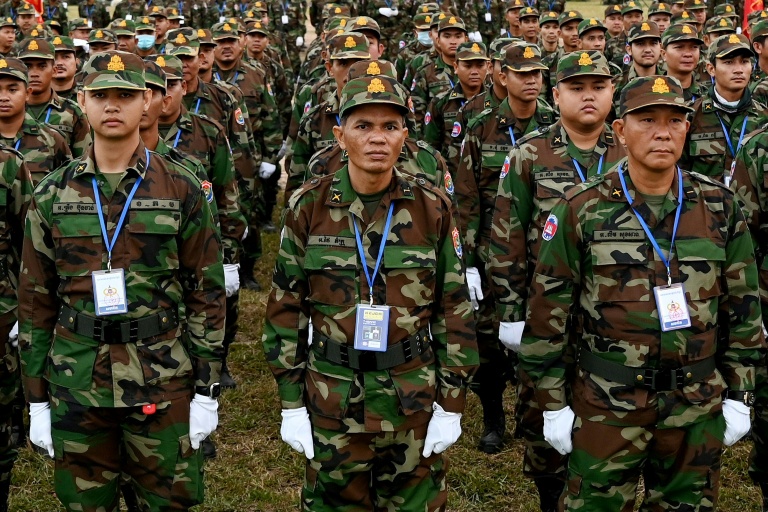A Nation Divided: The Impact of Military Conscription on Cambodian Youth
As Cambodia prepares to implement a long-dormant conscription law, the country’s youth are caught between fear and patriotism. The law, which requires citizens aged 18 to 30 to serve in the military, has sparked a range of emotions among young people, from anxiety over financial burdens to a sense of duty to protect their homeland.
Voeun Dara, a 25-year-old tuk-tuk driver in Phnom Penh, expresses concern about how conscription could affect his family’s finances. “My family is poor. If I am called in for the service, I am worried that my family might face financial issues,” he said. His worries reflect the fears of many who are unsure how to balance national duty with personal responsibilities.
Prime Minister Hun Manet has emphasized the need for military readiness, citing rising tensions with Thailand. The recent border clash that resulted in the death of a Cambodian soldier has prompted the government to activate the 2006 conscription law. This move aims to bolster the military’s ranks, which currently number around 200,000 personnel.
For some, the idea of serving is not only a duty but also a source of pride. Ray Kimhak, a 21-year-old graphic design student, says he would gladly join if required. “We are ready to protect our territory because when it is gone, we would never get it back,” he stated. His brother-in-law, a volunteer soldier, has already been deployed to the 800-kilometer-long border with Thailand.
Despite the potential hardships, many young people support the government’s decision. An anonymous 64-year-old man, who was conscripted by the Khmer Rouge at age 17, expressed his support for the current plan. “Being a soldier is not easy, but I support the government’s plan of military conscription in the face of a border dispute with Thailand. We need to protect our land.”
The new legislation carries strict penalties for those who refuse to serve. In wartime, refusing to enlist could result in three years in prison, while peacetime refusals could lead to one year behind bars. However, some young people hope for a deferral. Oeng Sirayuth, an 18-year-old IT student, supports the call to arms but hopes to finish his studies first. “I am a bit reluctant because I have never thought that I will have to join the military service,” he admitted.
Under the new rules, women can choose to opt for volunteer work instead of military service. Leakhena, a 23-year-old saleswoman, however, is ready to serve on the frontlines. She recently helped her family deliver donations to soldiers patrolling the border. “We have to do something to protect our nation,” she said. “I feel proud for our soldiers. They are so brave.”
Economic Concerns and Military Challenges
While many support the conscription plan, others are concerned about its economic impact. A 20-year-old fine art student, who asked to remain anonymous, urged the government to delay the implementation as Cambodia recovers from the economic effects of the pandemic. “Our economy is still struggling,” he said. “If we enforce the law soon, we might face some problems for our economy.”
Political analyst Ou Virak highlighted the internal challenges facing Cambodia’s military. “Military training, chain of command, and military discipline are all issues that need to be addressed,” he noted. He added that for conscription to be successful, trust must be earned. “For conscription to work and be generally supported and accepted by the people, trust needs to be earned.”
Financial Commitment to Defense
Cambodia has allocated approximately $739 million for defense in 2025, making it the largest share of the country’s $9.32 billion national budget. Prime Minister Hun Manet has pledged to increase the defense budget as part of efforts to strengthen the military. However, the path forward remains complex, balancing national security with economic stability and public sentiment.
As the country moves toward implementing conscription, the voices of its youth continue to shape the conversation. Whether driven by patriotism, fear, or a desire for change, the next generation of Cambodians will play a crucial role in determining the future of the nation.







